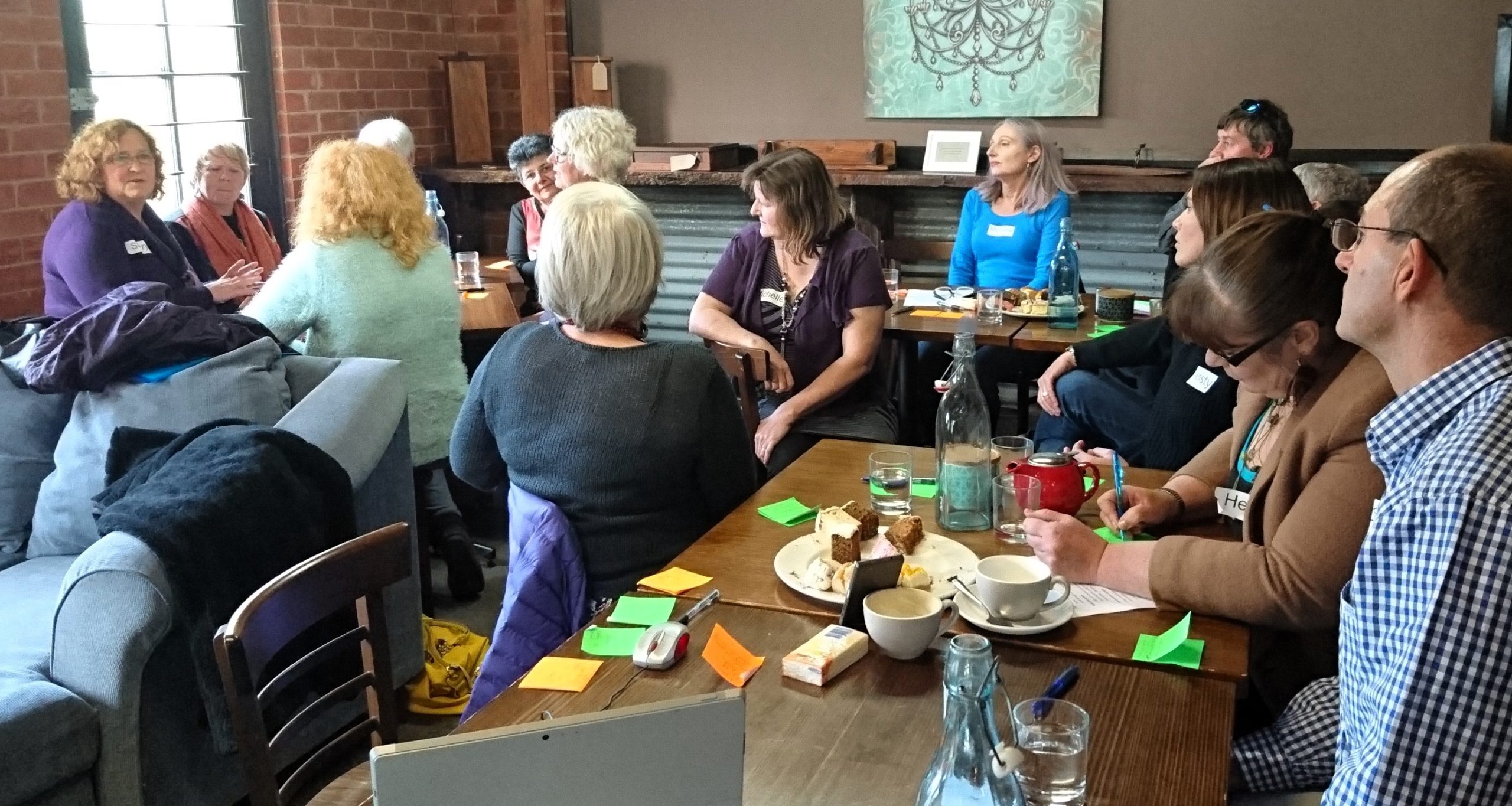JUNE 7, 2016
Yesterday, on a rainy winter Sunday afternoon, I hosted my fourth Death Café. This time it was in D&M Bakery in Angaston; an historic wine producing town nestled in the Barossa Valley, South Australia. Warmed by the fire, hot drinks and platters of freshly baked sweet treats, 18 of us came together to have a cuppa, cake and conversation about death. We even had a participant, Ingrid, attending via Skype.
Despite huge advances in modern medicine the mortality rate continues to be 100%.
Unknown
Why did we do this? We all have one thing in common. We are all going to die. We don’t have many spaces in our lives that encourage us to talk about death. But it’s my experience that we are hungry to do so. The aim of a Death Café is for us to increase our awareness of death to help us become more engaged with our finite lives.
The two hours flew by as we introduced ourselves and told our table of 6 what brought us here. There were many reasons including the recent death of a loved one, about to start a job as a funeral director, looking at becoming a Death Doula and being with like-minded people keen to talk about death openly. The conversations flowed.
In the last twenty minutes we reconvened as a group and shared what had been spoken about at each table. Here is a very brief summary of just some of the topics:
- What would you do if today was your last day?
- Death as an aphrodisiac for life. The more engaged you become with death the more enlivened you become.
- Rituals people created to mark the anniversary of the death of a loved one
- Should children be around the dying? We had stories from different tables that both supported and had concerns about having children around the dying or seeing and touching a dead body.
- Our job is to live e.g. we jump away when we see a snake or a car coming towards us because we do not want to die. This is an innate reaction. Our job is also to die. How to reconcile these two opposites and do both jobs well and at the right time?
- Exit Guardian and Death Doulas were discussed as mid-wives to help us die just like we have mid-wives to help us be born.
- It was discussed how hard it is to both be born and die at home. Birth and death are seen as medical issues rather than community/family issues.
- Palliative Care is available for home deaths but seems you need to do it within set times when there is a Palliative Care nurse on duty.
- Existential distress
- Different books people have read including On Death and Dying by Elizabeth Kübler-Ross and The Tibetan Book of Living and Dying by Sogyal Rinpoche
- Is there a link between living well then dying well?
- Reincarnation
- Ecological funerals
- Urban Death Project and other ways to process dead bodies other than cremation and coffin burial
- The pros and cons of people completing Advance Care Directives
- We had a poem read at one table written by one of the attendees
So … what is Death Café?
A Death Cafe is a group directed discussion of death with no agenda, no objectives or no themes. Since 2011 there have been an estimated 33,000 Death Cafes hosted around the world. You decide what you want to talk about. It’s a discussion group rather than a grief support or counselling session. It is an emergent process where we hold a space for each of us to do 3 things: We each get to talk, listen and reflect on death. And in that space magic often happens as it did for us on Sunday!
We shared some special moments. Ingrid was our Skype participant. When Ingrid was talking about her son who died tragically 18 months ago and holding up the glass artwork made from his ashes, the light streamed in from the window to her left and made “fingers of God” rays across the screen. Remember it was a rainy day. Ingrid was not aware of this, it was just something the people at her table witnessed. When she stopped talking about her son, the rays disappeared.
At the end our Death Cafe one thing we did all agree on was that death, just like birth, is mysterious, momentous and miraculous and we have a lot more to talk about.
Any questions? Get in touch.
